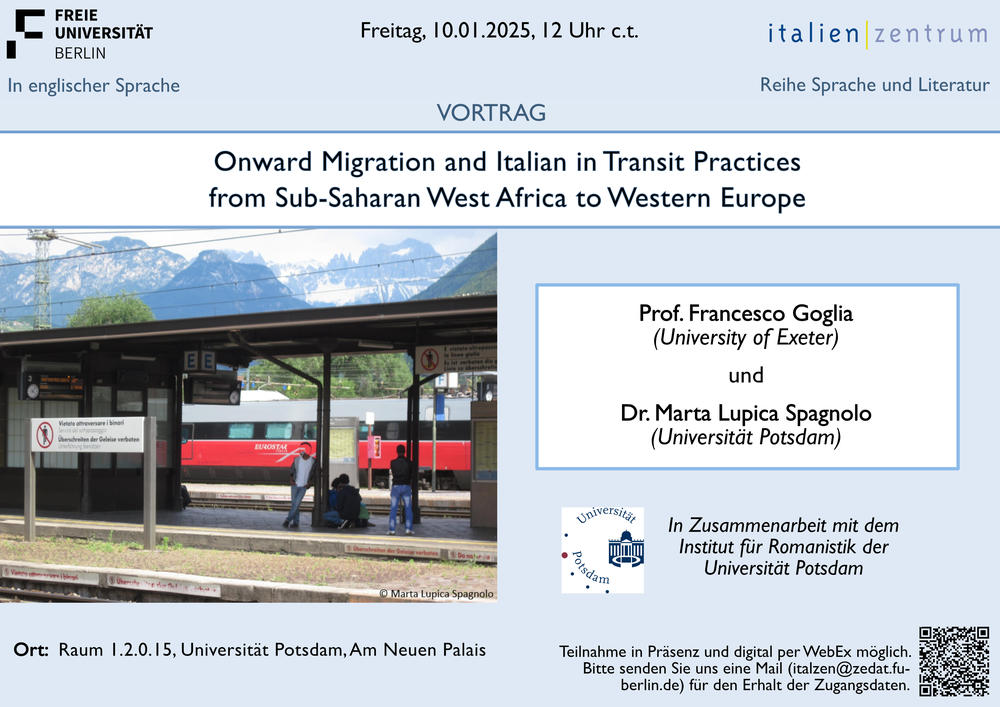Onward Migration and Italian in Transit Practices from Sub-Saharan West Africa to Western Europe
CONFERENZA
con Prof. Francesco Goglia (University of Exeter) e Dr. Marta Lupica Spagnolo (Universität Potsdam)
In lingua inglese
Given Italy’s geographical position and economic instability, (fragments of) Italian are increasingly integrated into the repertoires of highly multilingual, mobile speakers with complex biographical trajectories and linguistic backgrounds, who have lived in the peninsula for more or less long periods before moving abroad. This presentation compares two profiles of Italian speakers originally from non-European countries, highlighting distinct sociolinguistic dynamics.
In the first part, Francesco Goglia focuses on the restructuring of linguistic repertoires among first- and second-generation migrants who have engaged in onward migration from Italy to the UK. Onward migration refers to the renewed intra-European mobility of refugees and economic migrants who have acquired citizenship in an EU country. While extensively studied in Migration Studies and Sociology, the linguistic impacts of onward migration, particularly on language repertoires and maintenance, remain underexplored (Goglia, 2021, 2022, 2024). Goglia’s paper seeks to illuminate how families of “new Italians,” who have relocated to the UK after extended residence in Italy, navigate their heritage languages—Italian and other family languages. This work contributes sociolinguistic perspectives to the broader understanding of onward migration, complementing its well-established study within the Sociology of Migration.
In the second part, Marta Lupica Spagnolo analyses sociolinguistic and linguistic features of multilingual practices based on Italian, for which she proposes the label “Italian in Transit” (IiT; Lupica Spagnolo, 2023). Her dataset consists of 23 interviews with IiT speakers from sub-Saharan West Africa working as street vendors in a Berlin park. Unlike the onward migrants whose repertoires are examined in the first part of this presentation, the participants in the GörliPark corpus primarily acquired Italian as adults in unsupervised contexts in Italy, such as at work or on the street. Moreover, they only occasionally reactivate their IiT skills after remigration, mainly for “phatic” functions, like drawing the attention of potential customers crossing the park (Lupica Spagnolo, in press). Due to these precarious acquisition and (re)use settings, IiT practices exhibit high variability. Nevertheless, a case study of intensification strategies illustrates the emergence of peculiar usage patterns that both reflect the informal input participants were mainly exposed to in Italy and point to their creative refunctionalization of fossilised traits for communicative purposes.
In collaborazione con l'Istituto di Romanistica della Universität Potsdam
Partecipazione possibile in presenza e online via WebEx. Si prega di inviarci una e-mail (italzen@zedat.fu-berlin.de) per ricevere le credenziali di accesso.
Zeit & Ort
10.01.2025 | 12:00 c.t.
Raum 1.2.0.15,
Universität Potsdam,
Am Neuen Palais
